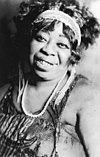Welcome! Check out today's deaths, recent deaths, or our deaths stats.
Feeling experimental? Head on over to our newest (and darkest) feature: Next-2-Die™ predictions
 Miriam Makeba
Miriam Makeba


South african singer and civil rights activist.
Born March 4th, 1932 in Johannesburg. [ref]
Died November 9th, 2008 at 76 years old in Castel Volturno (myocardial infarction). [ref]
It is with great sadness that we announce the passing of legendary South African singer and civil rights activist Miriam Makeba. She died on the 9th of November 2008 at the age of 76. Makeba, born in Johannesburg in 1932, was an acclaimed singer and songwriter who broke the boundaries between the traditional and the popular, and was an international symbol of resistance against the South African government's regime of racial oppression and segregation. Makeba's music career began in the 1950s, when she joined the all-female singing group the Manhattan Brothers and later the Skylarks. She gained underground fame in South Africa as a result of her recordings with them, and shortly after, in 1959, won a Grammy award for her solo album "The Magnificent Makeba". Makeba was also an outspoken activist who worked alongside Nelson Mandela and other leaders in the anti-apartheid movement. In 1960, the South African government revoked her passport in response to her activism, and in 1965 she left into exile and moved to the United States. During her time in exile, Makeba made significant contributions to the civil rights movement at the side of American icons such as Martin Luther King, Jr. and Harry Belafonte. Makeba lived and worked in a number of countries throughout her life, and released over 30 albums during her musical career. She will always be remembered by her fans for her soulful and powerful music, with songs like "Pata Pata" becoming global classics. Her life and achievements will remain as an inspirational reminder of the power of art and activism.
You might also be interested in...




I wanted a perfect ending. Now I’ve learned, the hard way, that some poems don’t rhyme, and some stories don’t have a clear beginning, middle, and end. Life is about not knowing, having to change, taking the moment and making the best of it, without knowing what’s going to happen next. Delicious ambiguity. Gilda Radner